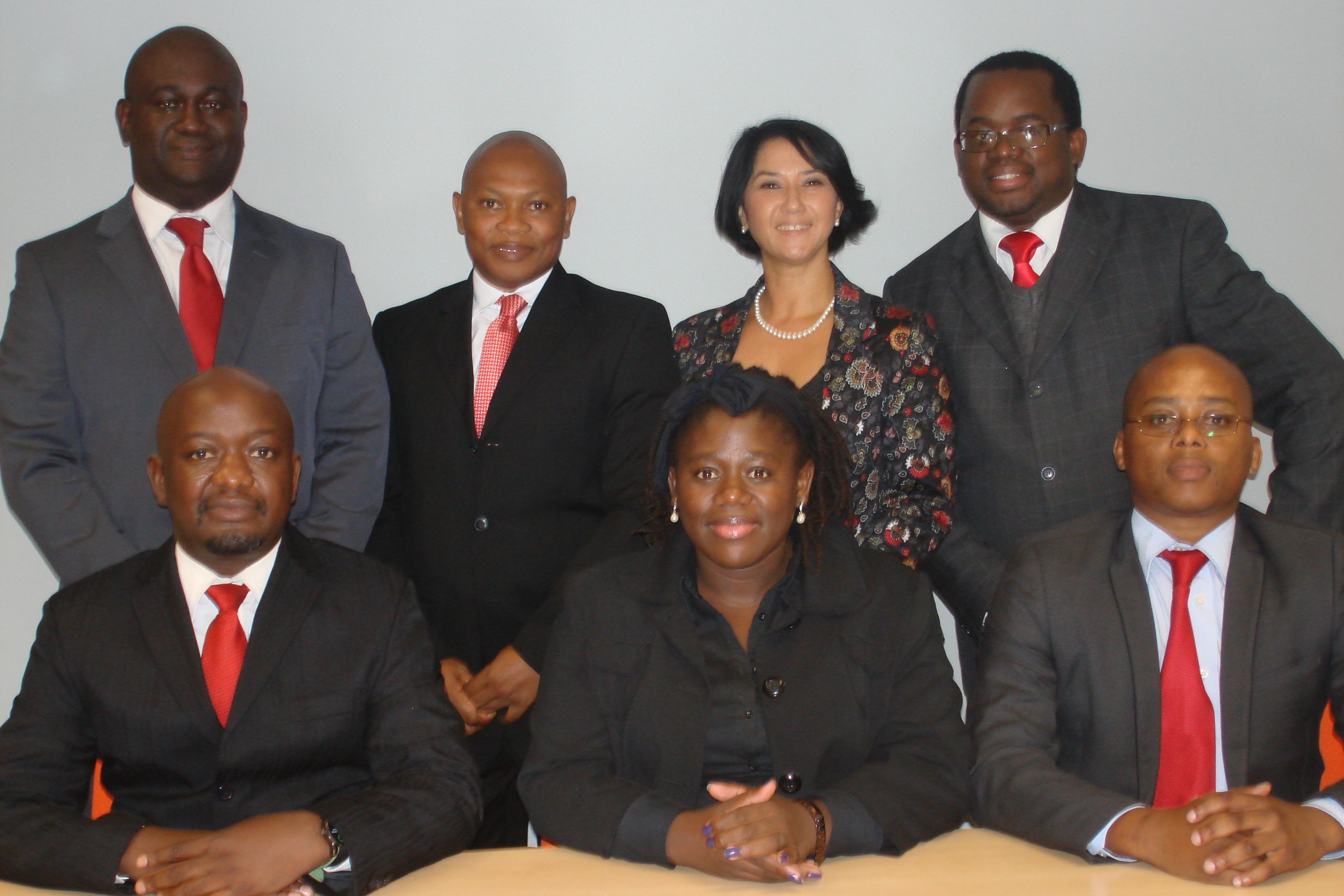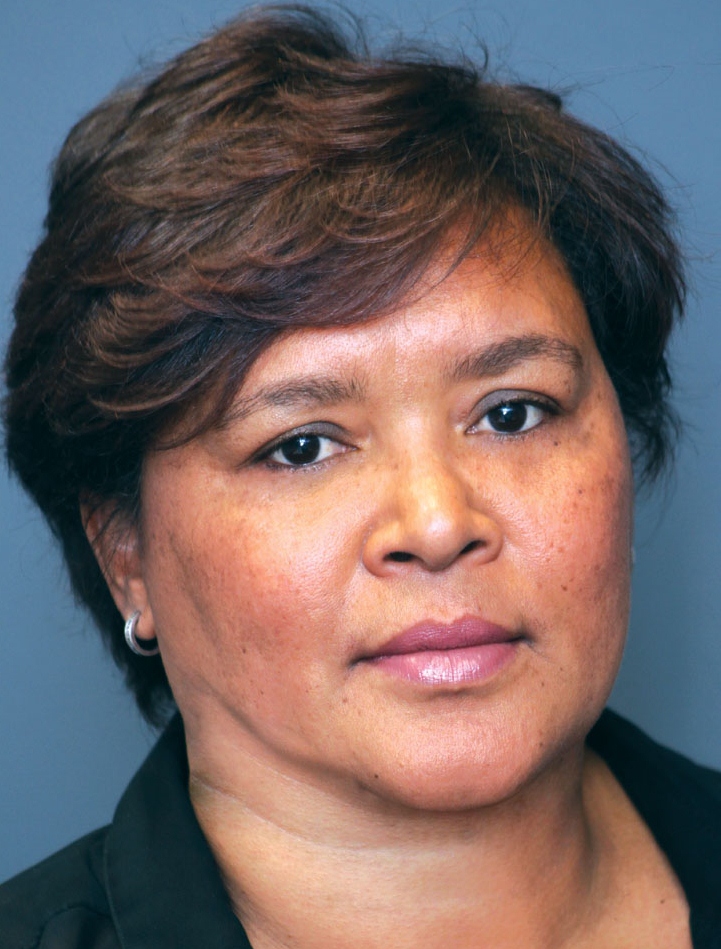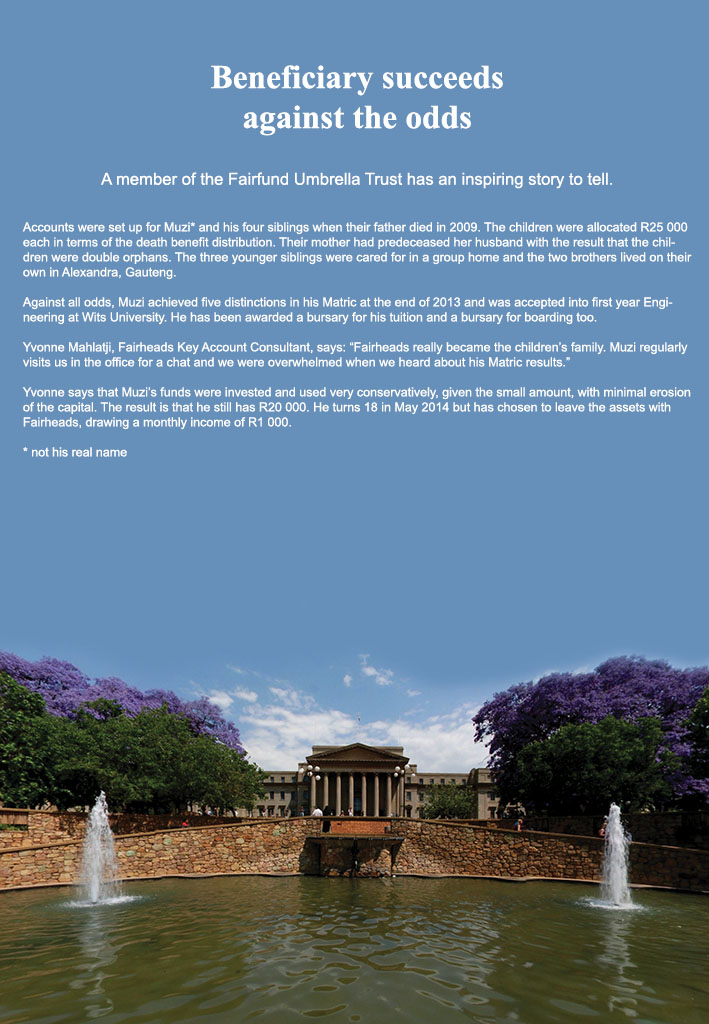|
Fairheads Times - April 2014
 The impact of recent amendments to the Pension Funds Act on beneficiary funds
The Financial Services Law General Amendment Act (FSLGAA) has brought about many changes to the various financial services acts and very specifically for our purposes, the Pension Funds Act 24 of 1956 (PFA).
The amendments to the Pension Funds Act shall, among other things, affect unclaimed benefits, unapproved group life benefits and allow pension funds to apply for business rescue. I will touch on certain amendments that the Financial Services Law General Amendment Act has brought about, with specific reference to the Pension Funds Act. This is by no means an exhaustive list but merely the amendments that affect beneficiary funds.
In terms of the amendments to the PFA, unclaimed or unresolved benefits are now capable of being transferred to an unclaimed benefits fund. If a member or beneficiary has not been paid within 24 months after a benefit has become due and payable in terms of the rules of a fund, or after the fund has become aware of the death of the member or beneficiary, the benefit may be paid into an unclaimed benefits fund, the definition of which has also been added to the PFA and falls under the definition of a pension reservation fund or provident preservation fund in terms of S1 of the Income Tax 58 of 1962.
The second major amendment allows unapproved group life benefits to be paid into beneficiary funds which was not allowed previously. Unapproved group life benefits are insurance policies e.g. accident policy or group life policy, that are not linked to, nor form part of a retirement fund and which are not subject to Section 37C of the PFA. Approved group life cover are policies that are held in the name of the retirement fund and that are subject to the retirement fund’s rules and Section 37C.
Previously, death benefits that arose from unapproved group life cover could be paid into a trust for a minor who was entitled to these benefits upon the death of a member. In contrast, approved death benefits could be transferred to a beneficiary fund upon the death of the member.
This is a welcome amendment, as beneficiaries that previously received both approved and unapproved benefits would have had to manage two accounts – one in a trust and one in a beneficiary fund. The practical consequence of this amendment sees approved and unapproved benefits being placed into a single account in a beneficiary fund, which allows the beneficiary’s benefits to be invested together. The result is fewer administration costs being charged and easier manageability of investments for the beneficiary. Beneficiary funds furthermore provide better protection to the minor’s benefits than trusts as the legislation governing it has stricter controls and enforcement.
The industry now waits to see whether the Financial Services Board will allow trusts that hold unapproved benefits, to be transferred into beneficiary funds that may now receive unapproved benefits.
In addition, paragraph (c) of the definition of a “Pension Fund Organisation’ has been amended to state that only benefits in ‘terms of the employment of a member’ may be administered and invested by beneficiary funds on behalf of beneficiaries who receive approved or unapproved death benefits on the death of a member. Whereas the PFA has been amended to allow unapproved group life to be paid into beneficiary funds, only unapproved group life that is employer-owned policies (which are unapproved benefits) may be transferred to a beneficiary fund. This simply means that if an individual has accident death cover that is paid for in terms of a group life policy for employees at his place of employment, the benefit may be paid into a beneficiary fund upon his death.
The other practical consequence of the amendment to the definition of a “Pension Fund Organisation’ is that benefits that arise from retirement annuities and preservation funds may not be administered by beneficiary funds as they are not linked to an individual’s employment. If, however, a retirement fund feels strongly about not paying a death benefit due to a minor to his/her guardian or caregiver, the benefit may still be paid into a trust to be administered on behalf of the minor.
There are other important practical amendments to the PFA, like the addition that a spouse, former spouse of a member and a former member now also fall within the definition of a complainant which they did not previously; a member or beneficiary’s benefit may be paid to a third party if they are unable to open a bank account; and a fund may appoint a deputy principal officer. Furthermore, pension fund organisations and administrators may now apply for business rescue whether or not they are a company, which brings the PFA in line with the New Companies Act, 2008.
The amendments to the PFA have practical consequences and seek to align the act with recent legislation. With the exception of certain provisions the FSLGAA will come into effect on 28 February 2014.
Tax Alert
In the recent National Budget, Finance Minister Pravin Gordhan announced favourable adjustments to the taxation of pre-retirement lump-sum benefits, including death benefits. This positive Budget tax news makes beneficiary funds even more attractive.
The tax-free threshold for such benefits has been increased from R315 000 to R500 000. This is good news in particular for the families of blue-collar workers as raising the tax-free limit will ensure a relatively larger payout to dependants on their death.
Retirement fund members are taxed on a combination of their retirement fund credit and group life benefits. This brings the total payout often to more than R500 000, with the effect that lower-income retirement fund members whose salary was below the PAYE threshold were then taxed on their lump-sum death benefit. By raising the lumpsum tax threshold from R315 000 to R500 000, the family of those deceased members will obtain fairer tax treatment.
Fairheads met with National Treasury last year and we thank them for listening to the industry’s request to raise the tax-free threshold for death benefits. Beneficiary funds play an important social role in South Africa, enabling many children to subsist and complete their education even if they have lost a breadwinner. Anything that can be done to alleviate their plight is welcome.
Other tax advantages
The Budget announcement adds to the tax advantages of beneficiary funds. Did you know that:
• no tax is paid in the beneficiary fund (as beneficiary funds are taxed in the same manner as pension funds)?
• any payment out of a beneficiary fund, whether capital or income, is tax free? (This is particularly favourable for majors receiving funds on termination of their account).
If you have any questions about the taxation of beneficiary funds, please contact: Giselle Gould, Business Development Director on 011 883 9755.
 Fairheads consultants add even more value
Fairheads Benefit Services has two distinct client groups: corporate clients comprising pension fund trustees, employee benefit consultants, intermediaries and employers; and member clients comprising the guardians and minor dependants whose assets we administer on their behalf.
Communication and quality service are equally important for both groups of clients. Over the past few years we have had a strong focus on member communication which includes our pioneering national guardian roadshows and upgrading our state of the art contact centre. At the corporate client level we have focused on adding value which we believe differentiates our service in the marketplace. Our new advertisment highlights the value we add in our service to you.
Leading the value-add service campaign is the team of Fairheads consultants which has been expanding to keep pace with the rapid growth in our business. There are now nine consultants operating from four Fairheads offices in Sandton, Johannesburg, Durban and Cape Town.

Fairheads Benefit Services consultants team
Standing from left to right: Olefile Moea (Cape Town), Andile Guda (Durban), Nikki Jacobs (Sandton), Simbulele Mantyi (Sandton)
Seated from left to right: Davis Shabane (Johannesburg), Yvonne Mahlatji (Sandton), Monde Matolengwe (Sandton)
The consultants operate under the leadership of Giselle Gould, Business Development Director, and Fairheads stalwart Nikki Jacobs who relocated to Johannesburg in January this year. Nikki has over 13 years’ experience with Fairheads and has extensive knowledge of the administration systems and products, making her the ideal person to train and manage the consultants team.
Nikki says: “As part of our fiduciary duty, we need to report back and keep in close contact with trustees, consultants and often employers. Our member clients often contact the late breadwinner’s employer as a port of call for any queries and our aim is to proactively improve our communication and education of the member clients in order to minimise the need for them to call on the employers. ”
A key account management system is currently being implemented with a structured approach whereby each consultant is responsible for servicing specific accounts. General service and reporting requirements vary from client to client, so some clients may be interested to read about some of the value add services we provide:
• guidance on when to use a beneficiary fund, including attendance at sub-committee death benefit meetings
• tools on how to assess whether a guardian is financially competent enough to manage a lump-sum on behalf of minors
• training boards of trustees, employers, consultants, benefit administrators and human resources departments about beneficiary funds as well as death benefit management
• presentations and updates to boards and large administrators
• general servicing and report backs
If you have any questions relating to the service you are receiving, please feel free to contact Nikki Jacobs at: njacobs@fairheads.com or Giselle Gould at giselle@fairheads.com
Fairheads' new advert

 Pulling together to help the Marikana families
by Lucy Reyburn, Fairheads Media Consultant
The fatal shooting of 34 miners at Marikana mine on 16 August 2012 was a tragic event for South Africa. One and a half years later, the Farlam Commission of Inquiry is still under way and many of the families affected have not yet found closure.
Yet, there is some good news. Several organisations, including Lonmin and Fairheads Benefit Services, have collaborated to help ease the plight of the Marikana widows and their children.

Until recently, I did not know that Fairheads had been involved in setting up beneficiary fund accounts for the children whose families had lost a breadwinner. Giselle Gould, Business Development Director, explained that Fairheads felt it was not something they wished to publicise, given the pain of the people involved. I persuaded her to let me write an article however, as the work that has been done is an example of how the power of many can make a difference to individual lives. For the public who may not be familiar with beneficiary funds, this story may also help to place their use and advantages in context.
Lonmin’s Masakhane Provident Fund appointed Fairheads as beneficiary fund service provider in 2012. Death benefit lump sums allocated to minor dependants of deceased provident fund members are paid at the trustees’ discretion into a beneficiary fund, in this instance Fairheads’ flagship super beneficiary fund, the Fairheads Umbrella Beneficiary Fund (previously known as Fairfund). Beneficiary funds are a safe and tax-efficient way of managing minors’ assets, paying an income to the guardian or caregiver for subsistence and making special payments for medical and schooling expenses. In Fairheads’ experience, over 70% of adhoc payments are used for education (ad hoc payments are those special requests over and above the monthly income payment).
Fairheads set up 103 beneficiary fund accounts
Once the trustees of the Masakhane Provident Fund had conducted their investigation into the dependants and made allocation decisions,Fairheads set up a total of 103 sub accounts for the minor dependants of the 34 deceased miners. Yet it became clear that there was overlap as Lonmin, the miners’ employer, had set up its own trust to help pay for the children’s education. This is called the Sixteen Eight Memorial Trust whose stated purpose is to provide education support for the beneficiaries of employees who passed away following the tragic events of August 2012.
Realising the potential overlap of education payments and confusion on the part of the guardians, Fairheads held discussions with Lonmin to seek ways in which to cooperate so that the Sixteen Eight Memorial Trust is used for education expenses and the beneficiary fund assets rather used for other expenses and/or left to grow in the beneficiary fund until the child turns 18 when he or she is entitled to the remaining capital.
Monde Matolengwe, Fairheads Key Account Consultant for Masakhane Provident Fund, told me that the system is now working well and that extensive discussions have been held with the widows to explain the complexities of the various vehicles and what expenses to claim from which entity. He said that these consultations usually take place when the widows travel to Pretoria to attend the Farlam Commission hearings.
Lonmin’s human resources department invited Fairheads at the time of the Marikana one-year anniversary in August 2013 to attend a workshop they had organised for the families and staff and make a presentation on beneficiary funds so that the people involved could understand how they work.

What struck me was that people have reached out to each other notwithstanding the pain and divisions caused by Marikana to make sure that the most vulnerable of all, the children of the deceased miners, will be cared for. Longstanding relationships of trust have been established.
How one family is doing
It did not surprise me therefore to learn that Monde, the Fairheads Masakhane consultant, told me that he communicates regularly with most of the families via SMS or WhatsApp. He asked one of the widows if she would mind chatting to me. I spoke for about 10 minutes, through Monde as interpreter, with Thandi*), a young woman who is the second wife of one of the deceased miners with whom she had two children. One child is in Grade R and the other in Grade 10. She said that they were alright and that school was going well for them, although the older child still had recurring emotional trauma from the death of her father and required counselling at school. She had moved provinces to look for work to supplement their income and has a tough underground job with a mining house. She understood that education claims were to be made to the Sixteen Eight Memorial Trust and that the beneficiary funds were to be used for clothes and food.
Thandi said it was easy to talk to Fairheads and access was easy through WhatsApp. She meets Monde regularly as he travels through to Pretoria to collect any necessary documents from her while she is visiting the Commission.
I wished her well and reflected how fortunate she was in a sense, to have the support and care that is being provided for her children. It is my hope that other vulnerable children, regardless of the circumstances under which they have lost a parent, will be given the same degree of care.
* Not her real name
 RisCura market commentary
February saw equity markets largely recover the losses experienced in January, when markets suffered their worst reversal since the volatile May to June period of last year as a result of the US Federal Reserve’s indications of tapering quantitative easing.

Despite relatively mediocre earnings results and poor economic data from China, investor sentiment towards equities remains firm, buoyed by continuing speculative behaviour in internet and life sciences related companies and by reaffirmation from central banks of continuing easy monetary policies for the foreseeable future.
In addition, emerging markets for the most part rebounded from the lows reached in January, though Russia was a noticeable outlier as the conflict over control of the government in neighbouring Ukraine intensified. The MSCI World index was up +4.8% for the month, with most major indices posting sizeable gains. Brent oil was up +2.5% in February on the back of tighter supplies and the increasing potential for an escalation of conflict in the Ukraine. Gold rallied +6.6% for the month and +10.4% YTD after demand for the metal returned on the back of a -28.3% price decline last year; China also overtook India as the world’s largest gold importer. Yields on 10-year US Treasuries and German Bunds remained stable at 2.65% and 1.62%, respectively. Rates have declined significantly from December due to reduced fears of substantial interest rate rises in the near term. The Japanese yen and the US dollar also generally depreciated slightly against other currencies after rising in January on fears of accelerating deterioration in emerging market economies.

In South Africa, the JSE All Share index was up +4.9% in February to hit an all-time high, more than recovering its losses in January when the rand currency collapsed -5.6% against the US dollar. The market rallied on the back of strong GDP growth of +3.8% in the fourth quarter as well as renewed strength in private sector lending, potentially indicating an improvement in consumer confidence. The rand also recovered from its recent lows to finish the month up +3.4% versus the US dollar. Producer price inflation came in at 7% in January, which though high was in line with investor expectations.
Further north, Nigerian President Goodluck Jonathan sacked the widely respected governor of the country’s central bank, Lamido Sanusi, who identified multi-billion dollars of embezzlement activity from the government’s treasury. This does not come as a surprise and the Governor’s tenure was already ending later this year. The government is also beginning to lose control of security, with almost 300 people killed so far this year by the terrorist group Boko Haram in the northern part of the country. Such poor governance is increasingly holding back the country’s development, though Nigeria continues to benefit from substantial growth in the working age population. The Nigeria All Share Index was down -2.5% on the month and -4.3% YTD.
In the Middle East, Egypt’s government resigned following paralysing strikes across the country. Elections are due in a few months, but the public fear the military will try to reassert authority over the government, with Field Marshal Abdel Fattah al-Sisi anticipated to run for the presidency. Nevertheless, commercial interests tend to prefer the political stability that the military provides. The EGX 30 index was up +9.8% in February and +19.8% YTD (as well as up +48.1% year over year). The rise in the Egyptian market demonstrates how African markets have the potential to outperform at the same time as other larger emerging markets post poor results.
The Japanese economy is almost solely dependent on the central bank maintaining its substantial quantitative easing programme, projected to be the largest as a proportion of GDP of any developed country since the Second World War. Despite such scale of monetary stimulus, the economy grew only 1% in the fourth quarter of last year. The Nikkei index fell a further -0.5% in February as a result after collapsing -8.5% in January.
Meanwhile, neighbours China and Taiwan held the first high-level talks since the end of China’s civil war in 1949. This hopefully increases the level of engagement and cooperation between the countries, helping to lower tensions in East Asia, which have been building over the past year. China’s central bank also allowed the yuan currency to fall by more than 1% against the US dollar in an initial test of potentially widening the yuan’s official trading range. This is the first major sign of economic reforms by the new government. However, the country is still struggling to come to terms with the effects of a transition from an export-oriented economy to a consumer-driven one. The purchasing managers’ index for manufacturing was 48.3 in January (below the 50.0 mark which signals expansion). The Shanghai Composite Index was still up 1.1% on the month (though down -2.8% YTD) but with a great deal of volatility. We note, however, that many domestic companies continue to post growth even in such an environment.
Eurozone recovery?
In Europe, the Eurozone economy grew by +0.5% in the fourth quarter of 2013 amidst continuing signs that the currency union is recovering from its series of debt crises between 2010 and 2012. Portugal’s latest long-term bond sale was three times oversubscribed and its 10-year yield has fallen below 5%; this will aid the country’s efforts to follow Ireland out of the IMF’s bailout programme next year. Portugal’s economy grew by an exceptional +1.6% in the fourth quarter, buoyed by increasing exports (41% of GDP now compared to 27% in 2009). At the same time, the yield on Greece’s debt fell below 7% for the first time since its debt crisis and restructuring in 2010. Investors also pushed the yield on 10-year Italian bonds below 4% to an eight year low after ratings agency Moody’s lifted its outlook for the country to stable from negative on decreasing concerns that the government will have to inject more capital into the country’s banks. In addition, Matteo Renzi, previously the mayor of Florence, took control of Italy’s ruling Democratic Party and was elected as prime minister after ousting incumbent and fellow party member Enrico Letta. Renzi comes with an aggressive agenda of economic and political reforms, which he aims to push through quickly. If successful, this may result in meaningful changes that improve Italy’s competitiveness. Germany’s DAX 30 and France’s CAC 40 indices were up +4.1% and +5.8% in February, respectively (all major Eurozone indices were also up by meaningful amounts).
Mark Carney, governor of the Bank of England, broke the central bank’s linkage between interest rates and unemployment (after previously suggesting that rates would rise when unemployment goes below 7.0%). Carney (as well as the leaders of the UK’s three major parties) also rejected any potential for Scotland to have joint control over the pound sterling, dealing a blow to Scottish nationalists who insist on continuing to use the currency. The governor has had a charmed tenure to date with the UK economic recovery accelerating, boosting both the pound and equity markets. The FTSE 100 index was up +4.6% on the month, more than recovering its losses in January.
In the United States, Janet Yellen was sworn in as chairwoman of the US Federal Reserve, succeeding Ben Bernanke, and immediately reaffirmed her commitment to a continuing easy monetary policy. This smooth transition of power at the central bank suggests that the Federal Reserve is likely to hold back from increasing interest rates until the unemployment rate is substantially lower or until inflation starts to pick up meaningfully. The central bank was aided by the Congressional Budget Office forecasting the government’s fiscal deficit falling to 3% of GDP, roughly in line with its 40-year average, and by Congress’s passage of a debt ceiling increase without conditions. GDP growth did slow to +2.4% in the fourth quarter of 2013, down from +4.1% in the third quarter, but this is likely the result of a 16-day shutdown of the government in October and an unusually cold winter.
Emerging market indebtedness, economic imbalances and political instability have taken centre stage this year. Though they are in better shape than they were heading into previous crises, some countries will require a number of years to resolve their issues. The headline risks posed by large scale protests and in particular the conflict between Russia and the Ukraine will likely weigh heavily on investor sentiment.
Equities in general have outpaced their underlying earnings growth, leading to fair to expensive valuations. However, with economic recovery accelerating in developed markets, it is likely that the equity rally will continue this year, though at a slower pace and with more volatility (likely to depend on when expectations of higher interest rates start to be priced into markets).
(This article was written as at 28 February 2014)
(Stock Market screens picture taken by Bianda Ahmad Hisham - shutterstock.com)
Beneficiary succeeds against the odds

Fairheads and the community:
Promoting entrepreneurship and job creation through enterprise development

Many South Africans dream of the kind of economic success that will allow for them to make a decent living for themselves and their families.
Despite having the will to start a business venture or upskill themselves, they more often than not lack the opportunity, resources and funding. This is where enterprise development initiatives make a difference.
Fairheads has increased the scope of its enterprise development investment by partnering, for the first time, with the Emdeni Skills Development Centre in Soweto, an initiative of the Abraham Kriel Childcare organisation. We also continue to fund two existing recipients.

The centre aims to promote the vocational skills of young people to enable them to establish their own micro-enterprises or alternatively to access employment opportunities. At present, the Centre supports seven companies in the form of administrative services support, business mentoring and start-up infrastructure and products. One of the companies under the program, Inqolobane Farmers, won the second runner-up prize in Best Community Projects’ section of the Gauteng “Young Farmer of the Year” awards, organised by MEC for Agriculture and Rural Development.

Fairheads continues its support to Iziko Lo Lwazi, a non-profit organisation in Hout Bay, Cape Town, which employs local women to produce stationery products from recycled paper with unique beaded designs. They also offer an enterprise development programme, English literacy, skills training, life skills and opportunities for entrepreneurship. Loans and business mentoring are also made available to these women who live in the local informal settlement of Imizamo Yethu. The organisation is in the process of getting an enterprise development training shop off the ground which will train learners to run their own small businesses.
The Business Place in Philippi, Cape Town, is a long-standing enterprise development partner to Fairheads. The Business Place is a national network of walk-in business centres for entrepreneurs. For a number of years, Fairheads has granted funding for a Container Village where office and retail space generates rental income for The Business Place. Also, since partnering with The Business Place, part of the Fairheads donations went directly to start and support on-site businesses, such as Simphiwe’s Shoes and Locks as well as Simon Nkanunu’s Megapix Media. Simphiwe purchased equipment which enabled him to offer a locksmith service to the community and see his turnover grow, while Simon purchased equipment for his digital printing business.
Marilyn Brown, Fairheads financial director and enterprise development champion concludes, “We at Fairheads are proud of what the above entrepreneurs are able to achieve with the initial kick-start provided by our funding. We will continue to support enterprise development as it creates future sustainability in terms of job growth in the communities where it is needed most.”
For more information about these organisations, go to www.abrahamkriel.org | www.izikoll.co.za | www.thebusinessplace.co.za
<< News
|
|